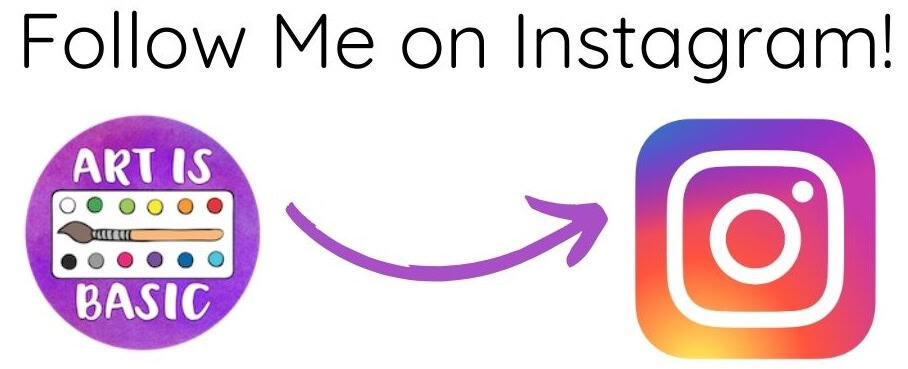
Hello friends! Have you used Gelli Printing Plates before? I was introduced to this a couple of years ago because I received a couple samples to try out for my blog. They are a super fun way to do monoprinting with kids. You can read all about the process and see videos of techniques at their blog, Gelli Arts. There’s also a way to make your own gelatin plates, but I’ve never tried it because it seems like a lot of hassle to me with a classroom full of kids. The Gelli plates are a bit pricey (about $18 or so depending on size), but they are reuseable over and over AND I didn’t buy one for every kid in the class. I added a few more each year until now I have enough for most kids to not have to wait too long for their turn. At first, I had 2 of them and let the kids work on them in partners as a station (while the rest of the class was working on other things.) Here’s a group of four kids playing with the printing plates together. Teamwork!

I was inspired by a similar idea for printing snowflakes on the illustrious Cassie Stephens blog. I thought this process would be perfect and easy for the young kids to print hearts.
Here is how I set up the station. First, I laid a large sheet of plastic on the tables. Here is the story of these plastic table coverings. One of our Science teachers uses Freecycle frequently and found TONS of plastic surgery sheets that were no longer useable (maybe no longer sterile for some reason?) by a local hospital. There is a place on the sheets with symbols for where to lay your head, ha! She picked up boxes of these plastic sheets and had them available for use. I grappled with the environmental problems with using throw-away plastic for covering tables, but then after realizing that they were not able to be used for their intended purpose anymore, they were just being discarded anyways and they would come in handy…. I reluctantly use them for super messy projects. They could be wiped down and reused. Anyways… so what I did was place colored masking tape on the table to mark off where the paint goes. Then, the Gelli plate is next to it and paper in the middle. Well, you can see from the picture how it is set up.

To print, use a brayer to dab the side of the brayer in the acrylic paint and roll a THIN layer on the plate. You can use Paint Scrapers or clay texture rollers to gently put texture on the paint (kind of like when you make paste papers.) Place your heart on top and then the white paper on top and gently press all over the back. Pull the print and ta-da! Here is a picture of the plate, heart and resulting print after the print has been pulled. Sign your name at the bottom.

On this one, a Q-tip was used to draw the scalloped lines around the heart.

The wavy lines were made with a paint scraper and the circles were made with a clay texture roller.

This little boy made a heart face on his!

The leftover heart is just as beautiful as the finished print.


After the prints were dry, the students used markers to add details on top. They could also choose to cut out additional paper designs to glue on top. The prints were glued to a colorful background and some students added a border with markers.


Here are a few more of our finished prints. If you are interested in learning more about Gelli printing, the book Gelli Plate Printing: Mixed-Media Monoprinting Without a Press has many basic ideas for getting started. Also check out the leaf prints we made in Kindergarten. I’ve done more printing and collage making with these Gelli plates but I don’t know if I’ve ever posted pictures of them on this blog. I couldn’t seem to find more examples . Check out the Gelli Arts Pinterest page for tons of ideas.

This post was not sponsored by Gelli Arts, I just wanted to share with you our projects. Links included are from Amazon Affiliates, but I would never recommend products I don’t use myself.
Discover more from Art is Basic | Elementary Art Ideas
Subscribe to get the latest posts sent to your email.






























I keep seeing gelli plates all over the place and now my interest is officially piqued! What a neat idea and your results are really beautiful. Are the plates really fragile? I am wondering if I could use them with my adaptive art class or could they be damaged by their sometimes rough handling of the art supplies.
They are pretty sturdy so I bet your students could use them just fine. You don’t want to make marks on them with a toothpick or something that can scratch the surface. But otherwise they can take a fair amount of use.